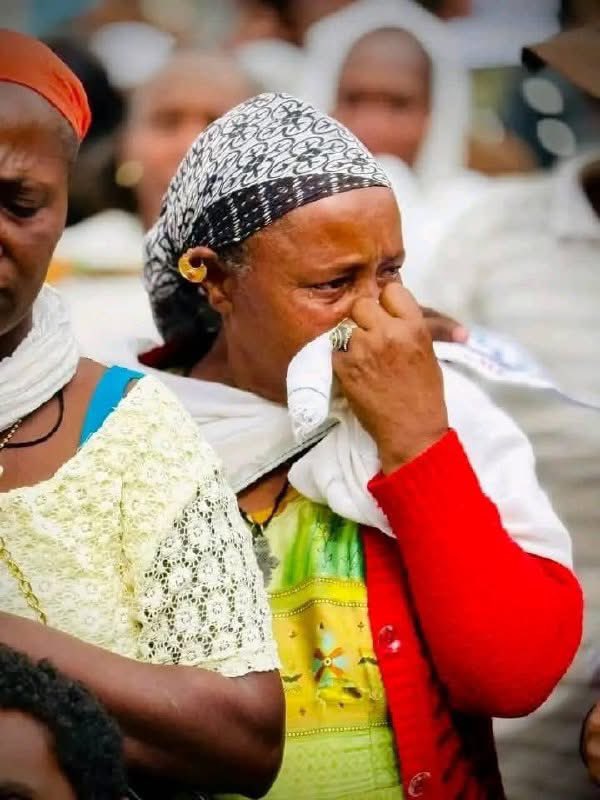Mekelle፡Telaviv, Nairobi, Pretoria, London, (Tigray Herald)
Silenced in the Shadows: Dayib’s Reign of Fear in the Somali Regional State
By:Azim Hussein
In the shadows of governance, where secrecy and unchecked authority intertwine, abuses of power often flourish. Few figures exemplify this dangerous dynamic more starkly than Dayib during his tenure at the somali Regional state Security office(SRS). What began as a mandate to protect national interests quickly devolved into a reign of fear marked by secret prisons, systemic torture,
and sweeping human rights violations.
The Birth of a Parallel Justice System
Under Dayib’s direction, the SRS veered from legitimate security operations into
a clandestine network of unlawful detention centers. Ordinary homes were
transformed into makeshift prisons facilities completely hidden from public
oversight, judicial scrutiny, or international monitors. These covert sites served
not as places of justice, but as instruments of repression.
Detainees held within these walls were often accused without evidence, imprisoned without charges, and denied the most fundamental legal protections. Families were kept in the dark, lawyers were barred, and the rule of law was all but erased.
Torture and Cruelty: A Policy of Fear
Perhaps most damning were the reports of torture and inhuman treatment within these secret prisons. Former detainees have recounted harrowing experiences: beatings, psychological torment, sleep deprivation, and other methods intended to break the spirit. These practices directly contravene
international human rights standards, including the United Nations Convention
Against Torture, to which many nations including Dayib’s are signatories.
What makes this even more egregious is the institutional silence that surrounded
these abuses. With no external oversight and no internal accountability, Dayib
operated with near-total impunity. The secretive nature of his operations
ensured that victims had no voice, no recourse, and no hope of justice.
The Collapse of Accountabilit
Dayib’s use of extralegal methods not only harmed individuals but corroded the
very institutions meant to uphold justice. His actions spotlight a deeper structural failure one where security agencies are weaponized against the people they are sworn to protect.
The absence of checks and balances allowed Dayib to act as judge, jury, and jailer, creating a culture of fear and suspicion.
These clandestine operations fractured public trust in law enforcement and
judicial systems. They sent a message that the state could and would operate above the law whenever it suited those in power.
A Dangerous Precedent
Perhaps the most haunting aspect of Dayib’s legacy is the precedent it sets. By
normalizing the use of secret prisons and state-sanctioned abuse, his regime
paved the way for future leaders to follow suit. Once the threshold of legality is
crossed without consequence, the erosion of democratic norms accelerates.
The long-term damage cannot be quantified solely by the number of those
detained or tortured. It must also be measured in the fear instilled, the legal
institutions weakened, and the society left traumatized in the aftermath.
The Call for Justice and Reform
The legacy of Dayib must not be allowed to fade into silence. The international
community, human rights organizations, and domestic reformers must demand
accountability. There must be investigations, not only to provide justice for victims but also to expose the full extent of the abuses and prevent their recurrence.
Reparations for survivors, legal reforms, and the establishment of independent
oversight bodies are crucial steps in restoring the rule of law. Transparency must
become the standard not the exception.
Conclusion: Never Again
Dayib’s era at the SRS was a dark chapter in the country’s history-a time when
fear eclipsed justice, and power operated unchecked behind closed doors.
Remembering and confronting this past is not merely a historical exercise; it is a
moral imperative. The crimes committed under the guise of security must be
acknowledged, condemned, and never repeated.
If justice means anything at all, then those responsible for such grave violations
must be held to account. Only then can the country begin to rebuild its legal and ethical foundation, ensuring that no leader ever again has the power to silence
truth with shadows.
Azim Hussein
Email:azim29269@gmail.com
Azim Hussein is a freelance writer and governance advocate based in Jigjiga Somali region.




